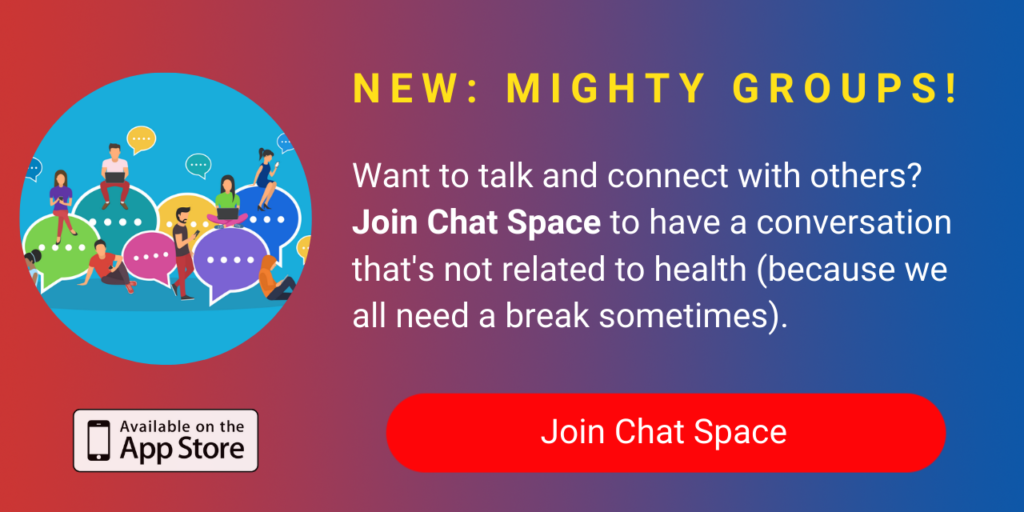I think it’s fair to state that a lot of us have lost friendships because our friend or loved one wasn’t able to handle our mental illness symptoms. This one-dimensional notion that we aren’t good enough as friends is perpetuated by blanket statements like, “Stop checking on people who don’t check up on you.” The statements I see circling around social media regarding who is an ideal friend perpetuates this idea that mentally ill folks aren’t worthy of friendship. I have had to learn to say “I’m sorry,” a lot because I consistently fail to meet my friends’ and family’s expectations.
As a disabled individual living with bipolar disorder and depression, I experience anhedonia, have little to no energy and experience suicidal ideations that hinder my ability to function in society at times. The harsh truth is that there will be times when I will “fail” my significant others and friends.
For my friends that utilize medication management, I understand that a medication shift may have tremendous ramifications on both our personal and professional life. I’d like to remind my neurotypical friends that we are taking a mind-altering substance that will impact our brain function. The list is truly endless when it comes to reasons that we may have difficulties with our relationships.
Sadly, the more friends I’ve lost, the more convinced I have been that this fear of mine about who I am is true. I’m not good enough as a friend. The truth is I have tremendous anxiety surrounding my relationships, and I’m terrified of being left in the dust. Even with close friends, I find myself pulling out my “resumé of reasons why I forget our meeting time or why I lacked the energy to check in with them for a whole month or two. Anxiety, major depressive disorder (MDD) and bipolar II hinder my ability to maintain close relationships. I know I’m far from perfect, and I still believe that relationships won’t necessarily heal the wounds that plague me, especially romantic relationships. I know that it’s natural for my friends to feel that I don’t care when it’s the third time I forgot we were supposed to hang out. I know that I can be difficult, and their feelings are valid towards me.
However, as folks who have never struggled with the same issues that plague me, I ask that loved ones hold space for myself and others to fall apart and mess up in the context of close relationships. I respect the hurt feelings that come with how my illness impacts my relationships; however, I beg that compassion is shown for the fact that I’m likely in a serious low in my bipolar depression. I beg that my actions are seen as a symptom of my disability rather than as an excuse to hide a secret that I don’t care or love my inner circle. I swear I’m doing my best to care for my loved ones well.
Moving through the world with a mental illness takes an emotional and psychological toll on my well-being. It’s unfortunate because we need people. To combat this notion that I will finally be abandoned by my loved ones, I find myself succumbing to a people-pleasing mentality. I find myself experiencing fewer opportunities to have healthy relationships, even when I bend over backward to receive acceptance from loved ones and co-workers. Yet, I continue to hold so much space for all my friends, regardless of their ability.
I wish folks recognized that mental illness has such a profound impact on who I am as an individual. It may impact who I am enough that it appears to be a personality trait. Perhaps this personality type predisposes me to have mental health disabilities, or perhaps I have experienced enough trauma in my life that epigenetics played in to the onset of severe mental illness. Regardless of how I came to be, I am allowed to come as I am.
We need to reimagine what a relationship with someone with a disability may look like as opposed to the relationships we have been commonly exposed to in life. Disabled folks have to endure a sort of friction as we move through the world. We have to explain ourselves until we are blue in the face, which requires extensive self-care on our part due to the exhaustion that comes with living in a world that frankly does not accept us. That’s a shame because we have so much to offer our loved ones. We have to acknowledge the pain of our friends with disabilities and appreciate that these individuals are not like neurotypical folks. It does not mean that our illness should shield us from conflict resolution.
Personally, I would appreciate it if concerns are brought to me in a timely fashion rather than deciding I’m not worth it and ghosting me. However, please understand that we are trying our best. We love you dearly, and we can’t promise that we will magically change because we hurt our loved ones. Personally, I will guarantee that I will not stop fighting for us to have a healthy, wholesome relationship, regardless of how I may appear from the outside looking in.
Image via contributor.


